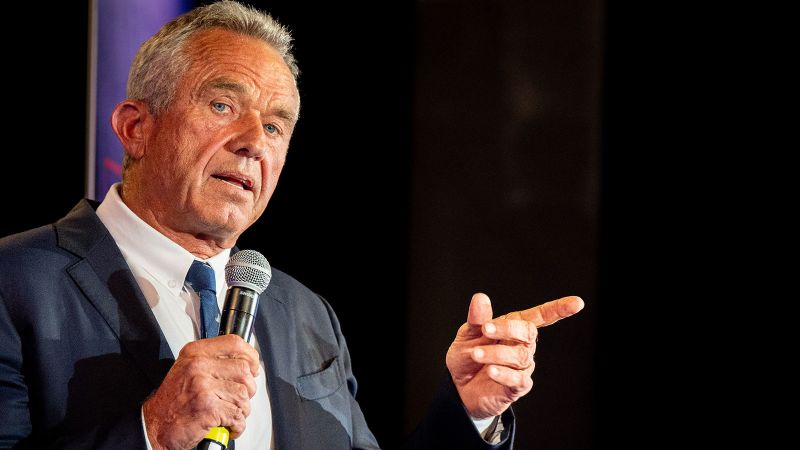The ruling by the New York judge invalidating Robert F. Kennedy Jr.’s ballot-access petition dealt a significant blow to the independent presidential candidate’s chances of achieving nationwide ballot access. The decision came after Democratic voters, supported by Clear Choice PAC, argued that Kennedy violated state law by listing a New York address on his petition despite residing in California. This ruling is part of a larger effort by various groups to combat third party candidates and limit their ability to gain access to the ballot.
In addition to the New York ruling, Kennedy is also facing ballot challenges in other states, including Maine. The Secretary of State’s office in Maine confirmed on Monday that Kennedy and Cornel West are facing objections to their ballot access petitions in the state. These challenges further complicate Kennedy’s efforts to secure a spot on the ballot and reach voters in the upcoming election. It remains to be seen how these legal battles will impact Kennedy’s campaign and whether he will be able to overcome these obstacles.
The invalidation of Kennedy’s ballot-access petition highlights the complex and often contentious process of gaining access to the ballot in the United States. Third party candidates, such as Kennedy, often face numerous obstacles, including legal challenges and stringent requirements, in their efforts to compete in elections. The ruling in New York and the challenges in other states underscore the uphill battle that independent candidates face when trying to challenge the dominant two-party system.
Kennedy’s campaign for president as an independent candidate has garnered attention and stirred controversy since its inception. As the son of Robert F. Kennedy and nephew of John F. Kennedy, he carries a famous political legacy, which has both drawn supporters and critics to his campaign. His platform, which focuses on issues such as climate change and social justice, has resonated with some voters but has also faced scrutiny and skepticism from others. The legal challenges to his ballot access further complicate his already challenging path to the presidency.
The involvement of Clear Choice PAC, a group seeking to combat third party candidates, in the legal battle against Kennedy adds another layer of complexity to the situation. Political action committees (PACs) play a significant role in shaping elections and influencing the political landscape, often by supporting or opposing candidates and causes. In this case, Clear Choice PAC’s opposition to Kennedy’s candidacy is part of a broader effort to limit the influence of third party candidates in the electoral process and strengthen the dominance of the major parties.
As the legal battles over ballot access continue to unfold, the outcome of Kennedy’s presidential bid remains uncertain. Whether he will be able to overcome these challenges and secure a spot on the ballot in key states is still up in the air. However, regardless of the ultimate result, Kennedy’s candidacy has brought attention to the issues surrounding third party candidates and the obstacles they face in American politics. The ruling in New York and the challenges in other states serve as a reminder of the complexities and barriers that come with trying to disrupt the traditional two-party system.













